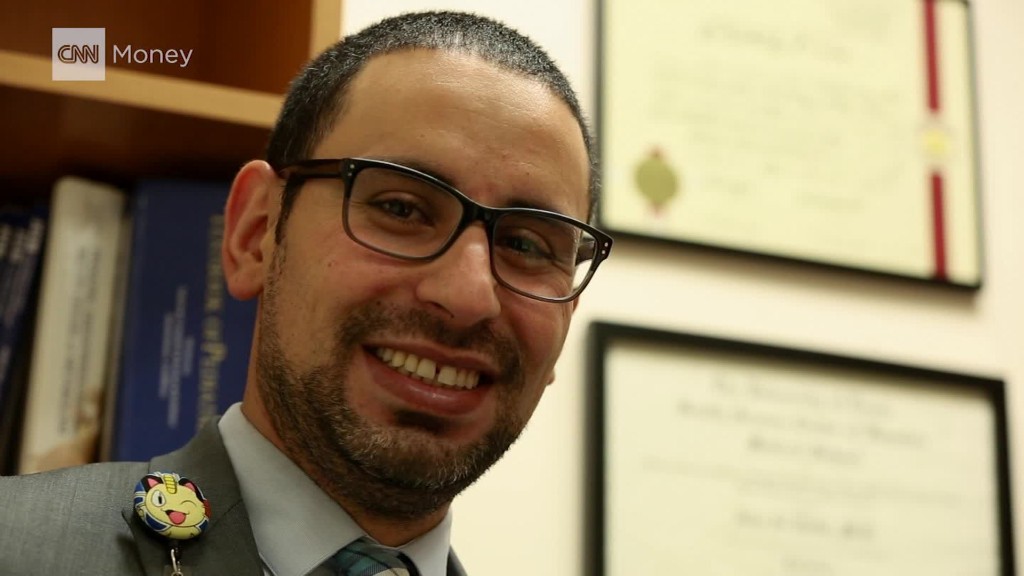
Dr. Raghuveer Kura is the only kidney specialist that the town of Poplar Bluff, Missouri, has had at its hospital for the past nine years. He sees nearly 3,000 patients, including 80 who need life-saving dialysis treatments.
"Some of my patients drive from an hour away to see me," said Kura, who is also chief of medicine at Poplar Bluff Regional Medical Center. "There is no other big hospital in town. This is it."
But now, a possible decades long wait for his green card has forced him to consider leaving Poplar Bluff and the United States behind.
"I have roots in this community. My children are growing up here. I'm paying my taxes and I've built long-lasting relationships with my patients," said Kura, who has also helped set up a dialysis treatment center in town. "But my time spent waiting for a green card seems to be never ending."
'I can't wait another 10 years'
Originally from India, Kura has been in the United States for 17 years, and has temporary worker status through an H-1B visa.
The government approved the first step in Kura's quest for a green card in 2014, but he still must wait in line behind hundreds of thousands of other applicants to actually get it. That's because Kura must first transition from his non-immigrant H-1B visa to an immigrant visa before he can receive his permanent resident status.
The United States issues 140,000 employment-based immigrant visas each year. And it limits how many of these visas it doles out to people from individual countries or with certain skills.
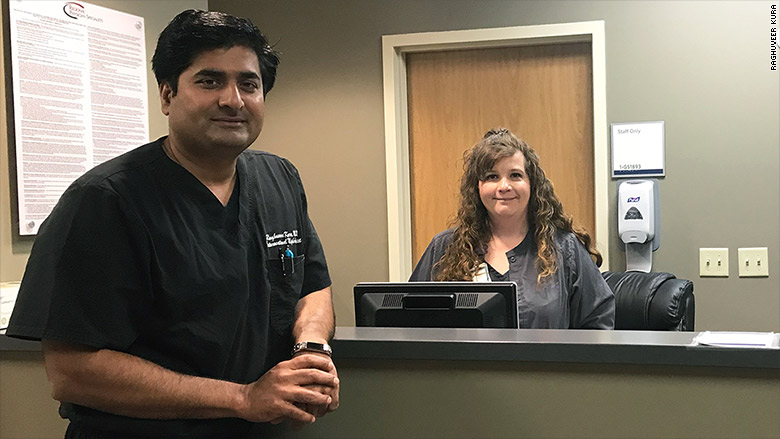
Often demand for these visas far outpaces supply, creating a wait list that can extend for years.
Related: The US can't keep up with demand for health aides, nurses and doctors
Greg Siskind, an immigration attorney and partner at Memphis-based firm Siskind Susser PC, says Kura is looking at a minimum of 15 to 20 years before he can get his permanent resident status. That's because the government is just getting around to processing work-based immigrant visa applications for Indian nationals who received their approvals nearly 10 years ago, he said.
"I can't wait another 10 years, not knowing what my future will be in the US," said Kura. He said he's thinking about moving to Canada or New Zealand.
If Kura leaves, Poplar Bluff, a town located about 150 miles from St. Louis, will likely struggle to find a doctor to replace him.
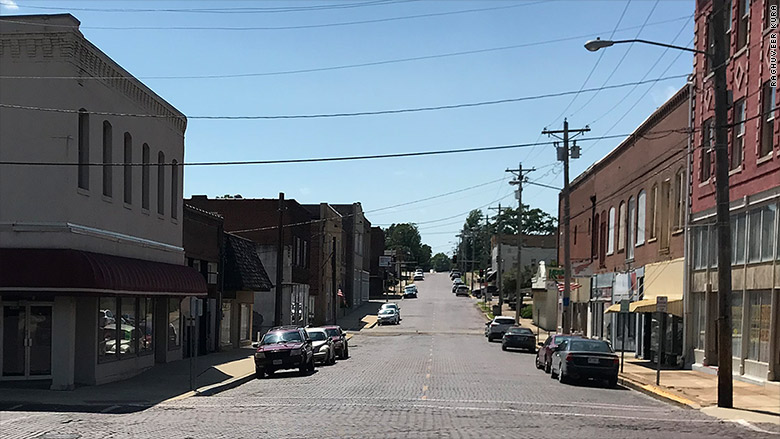
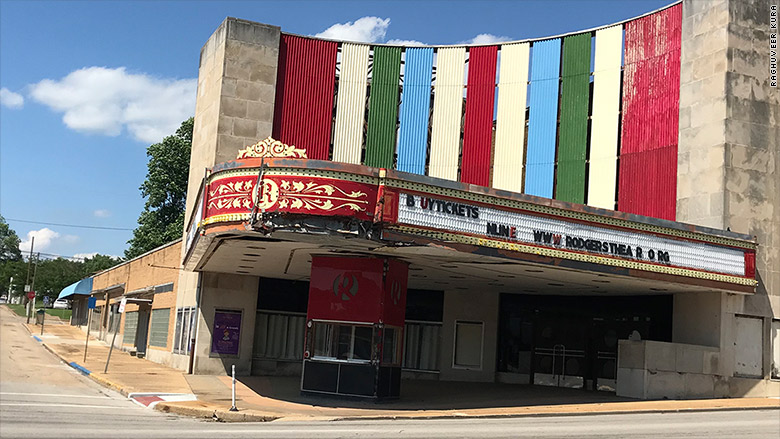
International medical graduates -- who account for a quarter of the 800,000 practicing doctors in the United States -- have stepped up to fill physician shortages throughout rural America. In exchange, they've been granted work visas and have been allowed to stay in the country after graduation. Typically, foreign medical graduates are required to leave the country after completing their medical residency and wait two years before applying for a US work visa.
But with immigration backlogs growing ever longer, it may become harder to keep some of these foreign doctors in the country.
Doctor shortages are expected to get worse
That's especially troubling considering physician shortages in these areas are expected to only get worse. According to the Association of American Medical Colleges, the nation could see a shortfall of up to 120,000 physicians by 2030.
Dr. Deepu Sudhakaran is a bariatric surgeon at St. Mary's Hospital in the small, blue collar town of Centralia, Illinois.
An Indian citizen, Sudhakaran has performed more than 200 bariatric surgeries over the past three years and was instrumental in establishing a nationally accredited bariatric surgery center in the town.
Related: Hospitals offer big bonuses, free housing and tuition to recruit nurses
"Weight-related medical problems are very common here," he said. "We also see a high incidence of sleep apnea and diabetes in the population."
Sudhakaran completed the first step in the permanent residency process -- getting approval for his immigrant visa -- in 2012, "but I have no idea when I will get [my green card]," he said.
He wants to permanently settle in Illinois or nearby with his wife and two young children, who were born in America.
"I want to feel included and not like an outsider," said Sudhakaran, who has lived in the country for 17 years.
But he, too, is reaching a breaking point and he's now considering moving to Canada.
Losing Sudhakaran would be a terrible loss for the town.
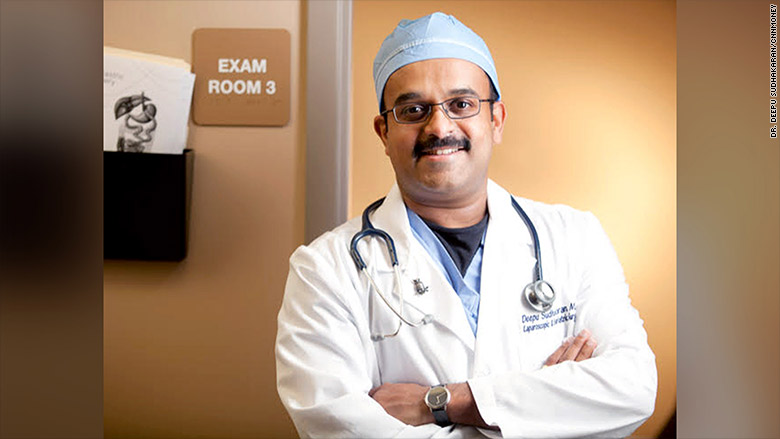
"He has great passion and wants to make a difference in his patients' lives," said Damon Harbison, the interim president at SSM Health, which operates St. Mary's Hospital. "He doesn't only treat them. He educates them about wellness so they break the cycle of unhealthy living."
In Marion, Illinois, physician turnover is so high that Dr. Ram Sanjeev Alur went from being the most junior physician on staff at the small town's VA hospital to the most senior in just two years.
Originally from India, Alur treats mostly patients who are 60 years of age or older at the Marion VA Medical Center
"We're perpetually looking to hire physicians here," he said, noting that the challenges of living in a rural setting aren't always appealing to most doctors.
Related: Nursing schools are rejecting thousands of applicants
Alur applied for his green card in 2016. Until he gets it, he has to renew his visa every three years.
He worries about providing stability for his three young children. "If they are not happy, I will leave," he said. "I can take the hardship and uncertainty but I can't put them through years of it."
Otherwise, he says, he'll wait for his green card to be approved. But he won't do so quietly, he says.
"I want to advocate for us doctors who are living and working in America's underserved areas," he said. "We are serving a critical role. Without us, so many people wouldn't have access to any doctor."


